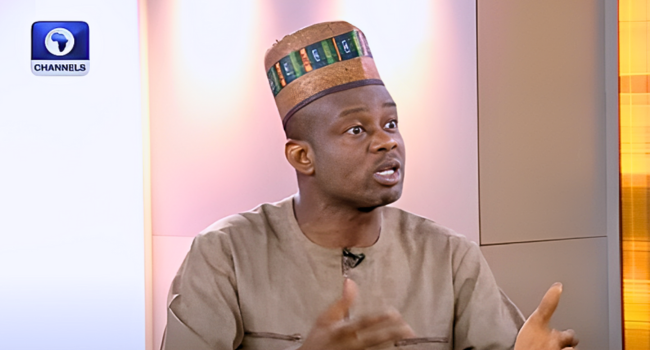Appeal Court Judgement: Clerical error on CTC shows judges can make ‘mistakes’ – APC Legal Team
The All Progressives Congress (APC) legal team in Kano says the clerical error on the Certified True Copy (CTC) of the state governorship election is an indication that judges are human and can make mistakes.
While the court had sacked Governor Abba Yusuf and declared the All Progressives Congress (APC)’s Nasiru Gawuna as the winner of the March election, a certified copy of the judgment showed that the Appeal Court affirmed the governor’s win.
In its defence, the court cited clerical error, a move a legal adviser of the APC Abdul Adamu said shows judges are not above mistakes.
Read Also: Shettima, governors, others meet for NEC in Abuja
“There are 23 Rule 4 cited by the Court of Appeal in their rules. In fact, the apex court of the land handed down a decision and said that judges are human beings. They are not demigods,” he said on Monday’s edition of Channels Television’s Sunrise Daily.

“They are bound to make mistakes, bound to make omissions. They are bound to make typographical errors or mistakes in their judgement.”
Adamu cited a specific clerical error in the judgement, where a paragraph inaccurately stated that the tribunal’s decision was ‘set aside’ instead of being ‘affirmed’.
He emphasised that such errors are commonplace and provided context, stating, “In fact, in one paragraph, it said, ‘all the issues in this appeal are resolved against the appellant and in favour of the first respondent’.
“Another paragraph mentioned the judgement of the tribunal… that it is hereby set aside instead of saying it is hereby affirmed. That is a clerical error. Instead of putting ‘affirm,’ the typist, in the course of typing, put ‘set aside.”
Read Also: FAAC: FG, states, LGCs share N906bn in October
Adamu further explained the legal process, pointing to Rule 4 of Order 23, cited by the court of appeal in their rules, which grants judges the authority to correct such errors, either on the application of the party or at their discretion.
He added, “The law invests them with the power to effect corrections either on the application of the party. In fact, Rule 4 of Order 23 makes it clear that the court of appeal has the power to do so, that correction”.



Comments are closed.